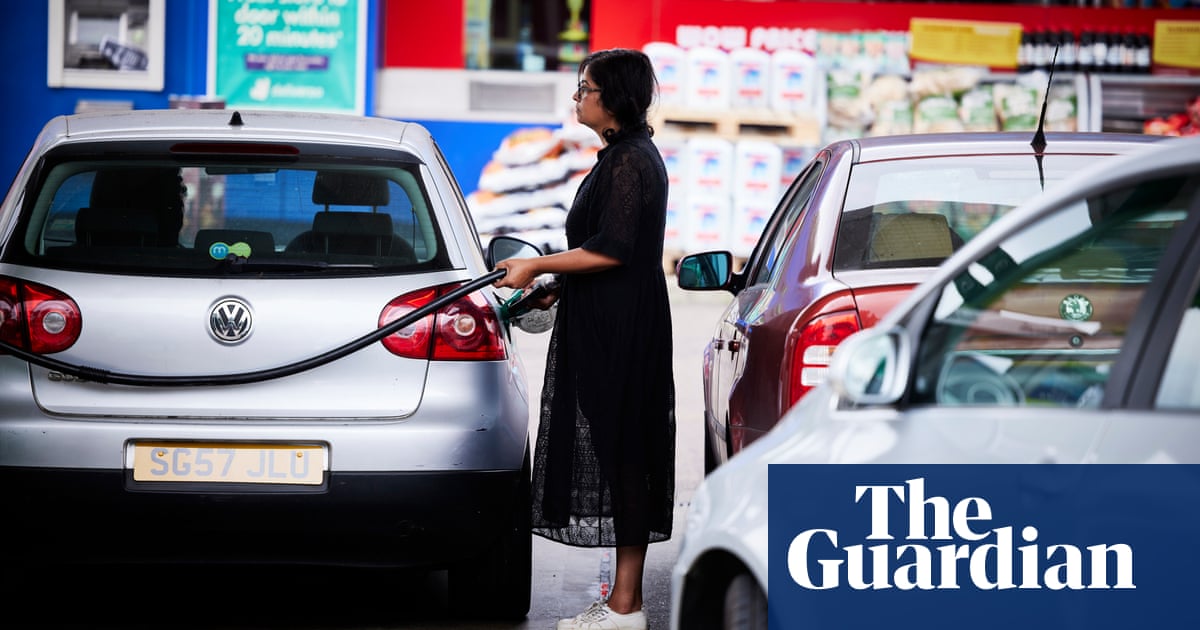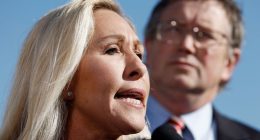
Boris Johnson’s attempt to reset his troubled premiership has received a double blow after petrol prices had their biggest daily rise in 17 years and a leading international thinktank said the UK economy would slow to a standstill next year.
Fears that Britain is heading for a prolonged period of 1970s-style stagflation intensified amid fresh evidence of the damaging impact of the war in Ukraine on the cost of living and growth.
Dashing government hopes of a sustained recovery from the Covid pandemic, the Organisation for Economic Co-operation and Development (OECD) singled out the cost of living crisis as a cause of Britain’s slide down the international growth league table. It said the UK would be the weakest economy in the G7 group of leading industrial nations next year.
In the latest twist to inflation, motorists are faced with the imminent threat of the cost of filling the average family saloon hitting £100 for the first time, after the cost of a litre of petrol rose 2.23p on Tuesday to more than 180p.
The data firm Experian Catalist said a similar increase on Wednesday would result in the £100 barrier being breached. Some forecourts are already selling petrol above £2 a litre, including a BP garage on the A1 near Sunderland that was charging 202.9p.
Average diesel prices are also at a record high, hitting 186.6p on Tuesday, up 1.4p from Monday. Higher diesel prices have a significant impact on the wider economy because businesses typically use the fuel to fill vans and lorries. Before Russia’s invasion in late February, petrol and diesel were hovering around the 150p mark.
With ministers wary of a backlash from drivers, Downing Street told petrol retailers they could face investigation by the competition watchdog if there was evidence that the 5p-a-litre cut in fuel duty announced by Rishi Sunak in his March mini-budget was not being passed on.
Inflation has already hit a 40-year-high of 9% and the OECD said it would continue rising to peak at above 10% later in the year.
Despite the demands of some Conservative MPs, Sunak has no immediate plans for tax cuts and intends to wait until the budget in the autumn before coming up with another package of support. The chancellor and the prime minister will outline plans in the coming weeks to boost growth through measures such as improving skills and raising Britain’s investment in research and development.
The UK economy will grow by 3.6% in 2022 and there will be zero growth in 2023, according to the Paris-based OECD, with inflation expected to average 8.8% this year and fall to 7.4% in 2023.
The predictions, contained in the OECD’s half-yearly economic outlook, represent a sharp downgrade from the estimated 4.7% growth this year and 2.1% next year made six months ago.
Laurence Boone, the thinktank’s chief economist, said the UK was being hit by a combination of factors including higher interest rates, higher taxes, reduced trade and more expensive energy.
The OECD said the UK was expected to go from being the second fastest-growing economy in the G7 group of industrial nations after Canada this year to the slowest-growing in 2023. Japan, Germany, Italy, France and the US are the other members of the group.
A UK Treasury spokesperson said: “Thanks to the support we provided during the pandemic, the UK had the fastest growth in the G7 last year, and our unemployment rate is the lowest it’s been in nearly 50 years. But we recognise many people will be concerned by these forecasts.
“While we can’t insulate the UK from global pressures entirely, our economy is in a strong position to deal with these challenges. We have a plan for growth, and we are supporting people with the cost of living.”
The increase in petrol and diesel prices has been blamed on increased demand for fuel around the world, including in China and the US as Covid restrictions loosen. A squeeze on capacity at refineries has also kept pump prices high, while oil has fallen from peaks seen at the start of the war in Ukraine.
The business secretary, Kwasi Kwarteng, wrote to forecourt retailers last month to “remind them of their responsibilities” to pass on tax cuts to motorists. He said it was “unacceptable that different locations even within the same retail chain have widely different prices”.
He has asked the Competition and Markets Authority to examine the issue. The prime minister’s spokesperson said: “The CMA have said that if they find evidence that the cut is not being passed on, that would mean competition is not working and they could launch a formal investigation. Obviously we would wholeheartedly support them. We are continuing to look at all possible options. Transparency may have an important role to play.”
Source: Guardian







